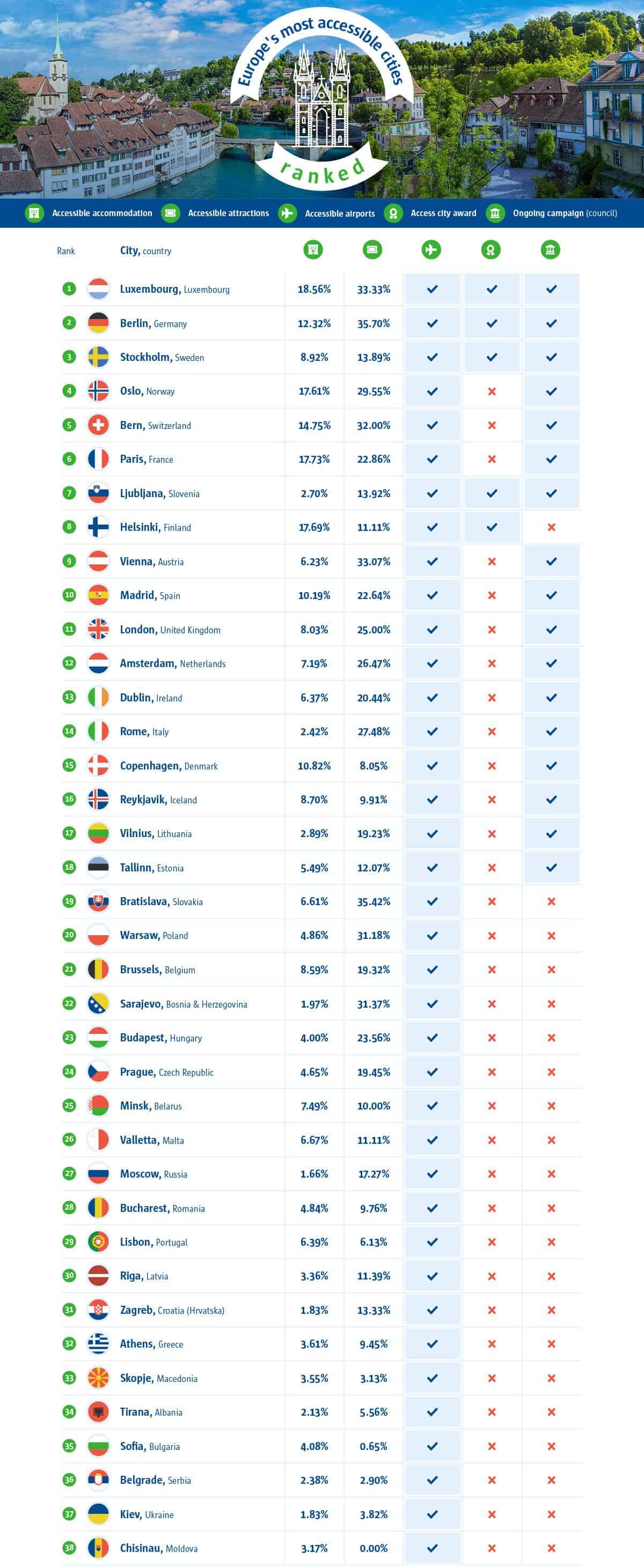Best and worst European capital cities for disabled travellers revealed

Looking at accessibility from a disabled traveller’s perspective, a new study has revealed the best and worst European capital cities in terms of accessibility.
Price comparison website Compare the Market took into account the accommodation, airports, awards, attractions and available information from official sites across the capital cities to determine how accessible each location was for disabled tourists.
Compare the Market’s accessibility rankings took into account: blind and visually impaired people, people with hearing difficulties, people with speech or communication disabilities, people with learning disabilities, wheelchair users, physical disabilities, people with emotional disabilities, people with a cognitive/developmental disability, and people with a temporary disability.
From the findings, Luxembourg (Luxembourg) was deemed Europe’s most accessible city. 18.56 percent of its accommodation was accessible and one third of its attractions were deemed accessible. It was awarded most accessible capital city due to raising awareness of various disabilities to reduce the stigmas associated with them and through making its public transport system accessible to all.
Additionally, the Luxembourg authorities coined the term “specific needs” in order to focus less on people’s weaknesses, and they approached accessibility with the philosophy of “design for all” to ensure that everyone can live and visit comfortably. The city has multiple relevant organisations involved in decision-making processes, ensuring that as many people as possible are represented and involved.
Luxembourg also has the highest percentage of accessible rooms with wheelchair access.
Berlin (Germany) received 12.32 percent for accessible accommodation and 35.7 percent for accessible attractions; Stockholm (Sweden) received 8.92 percent for accessible accommodation and 13.89 percent for accessible attractions; Oslo (Norway) received 17.61 percent for accessible accommodation and 29.55 percent for accessible attractions; and Bern (Switzerland) received 14.75 percent for accessible accommodation and 32 percent for accessible attractions, all making up the top 5 most accessible European capital cities along with Luxembourg.
As for London, it came 11th place in Compare the Market’s accessibility list, having 8.03 percent of accessible accommodation and one quarter of its attractions were accessible. Whilst this is a reasonable ranking, it suggests more can be done to improve England’s capital city.
The worst European capital cities in terms of accessibility were Tirana (Albania), Sofia (Bulgaria), Belgrade (Serbia), Kiev (Ukraine) and Chisinau (Moldova). Shockingly, none of Chisinau’s attractions were accessible for disabled tourists and a mere 3.17 percent of its accommodation was accessible.
See the full results from Compare the Market’s study below:


